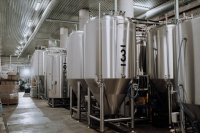Rig certifications are crucial for ensuring the safety, reliability, and operational integrity of drilling rigs used in oil and gas exploration and production. These certifications involve rigorous inspection and compliance processes that adhere to various national and international standards. Here’s an overview of the key standards and the certification process:
Key Standards for Rig Certifications
Rig certifications involve a series of standards and regulations designed to ensure the safety and reliability of equipment used in drilling operations, rig repairs and maintenance. These certifications are critical because they help prevent accidents, ensure operational efficiency, and comply with environmental regulations. Here are some key standards typically involved in rig certifications:
API (American Petroleum Institute) Standards
The API sets industry standards for oil and gas rigs, covering everything from design and construction to maintenance and safety. Key standards include API SPEC 4F for drilling and well servicing structures and API SPEC 8C for drilling and production hoisting equipment.
ISO (International Organization for Standardization) Standards
ISO provides standards such as ISO 9001 for quality management systems and ISO 14001 for environmental management systems, which are often applied in the context of rig operations to ensure quality and sustainability.
DNV GL Standards
This entity offers standards and technical assurance along with software and independent expert advisory services to the maritime, oil & gas, and energy industries. They provide certifications like DNVGL-ST-E273 for offshore drilling units.
ABS (American Bureau of Shipping)
ABS focuses on the classification of marine and offshore facilities, including mobile offshore drilling units and fixed platforms. They provide rules and guidelines for the design, construction, and periodic survey of marine drilling rigs, ensuring structural and operational integrity.
IADC (International Association of Drilling Contractors)
While not a standard-setting body per se, IADC provides guidelines and supports the industry in adopting standards, including offering training and accreditation programs. These activities include a safety induction program required for employees working on rigs, ensuring they meet basic safety regulations and training.
Certification Processes for Drill Rig Services
The certification processes for drill rig services are vital for ensuring safety, efficiency, and compliance with industry standards and regulations. Reach the highest standards in the industry, by cooperating with companies qualified such as UPET, leader in maintenance and remedial operations on existing oil and gas wells.
These processes can vary depending on the country, the specific industry, and the type of drilling operation, but there are some common elements that are generally involved. Here’s an overview:
Safety Certifications
Safety is paramount in drilling operations due to the high-risk nature of the work. Certifications might involve rigorous training and assessment of all personnel involved in the operation. This could include courses and certifications on handling equipment, emergency response, and occupational health and safety standards.
Equipment Certifications
Drill rigs and their components need to meet specific technical standards to be certified for use. These standards ensure that the equipment is suitable for the intended drilling conditions and is maintained in good working order. Certifications might be required for pressure control systems, electrical systems, and structural integrity.
Environmental Compliance
Certifications related to environmental protection are crucial, especially in regions where drilling activities can impact sensitive ecosystems. This might include assessments and approvals related to waste management, pollution control, and habitat protection.
Quality Management Systems
Certifications such as ISO 9001 for quality management systems are common. These ensure that the drill rig services company adheres to a set of international standards for quality management and continuous improvement.
Regulatory Compliance
Depending on the location and nature of the drilling operation, various governmental and industry-specific regulations must be complied with. This could involve permits and certifications from energy departments, maritime authorities (for offshore drilling), and local government units.
Operator Certifications
Individual operators of drill rigs may also need specific certifications to demonstrate their capability to safely and effectively operate the machinery. This can include technical proficiency assessments and ongoing training.
Third-Party Verifications
Often, external agencies or third-party organizations are involved in the certification processes to ensure impartiality and adherence to standards. These organizations might conduct audits, inspections and reviews.
For companies involved in drill rig services, staying updated with these certification requirements is crucial for legal compliance and operational success. Each jurisdiction may have additional or unique requirements, making it important for companies to engage with local authorities and certification bodies.








